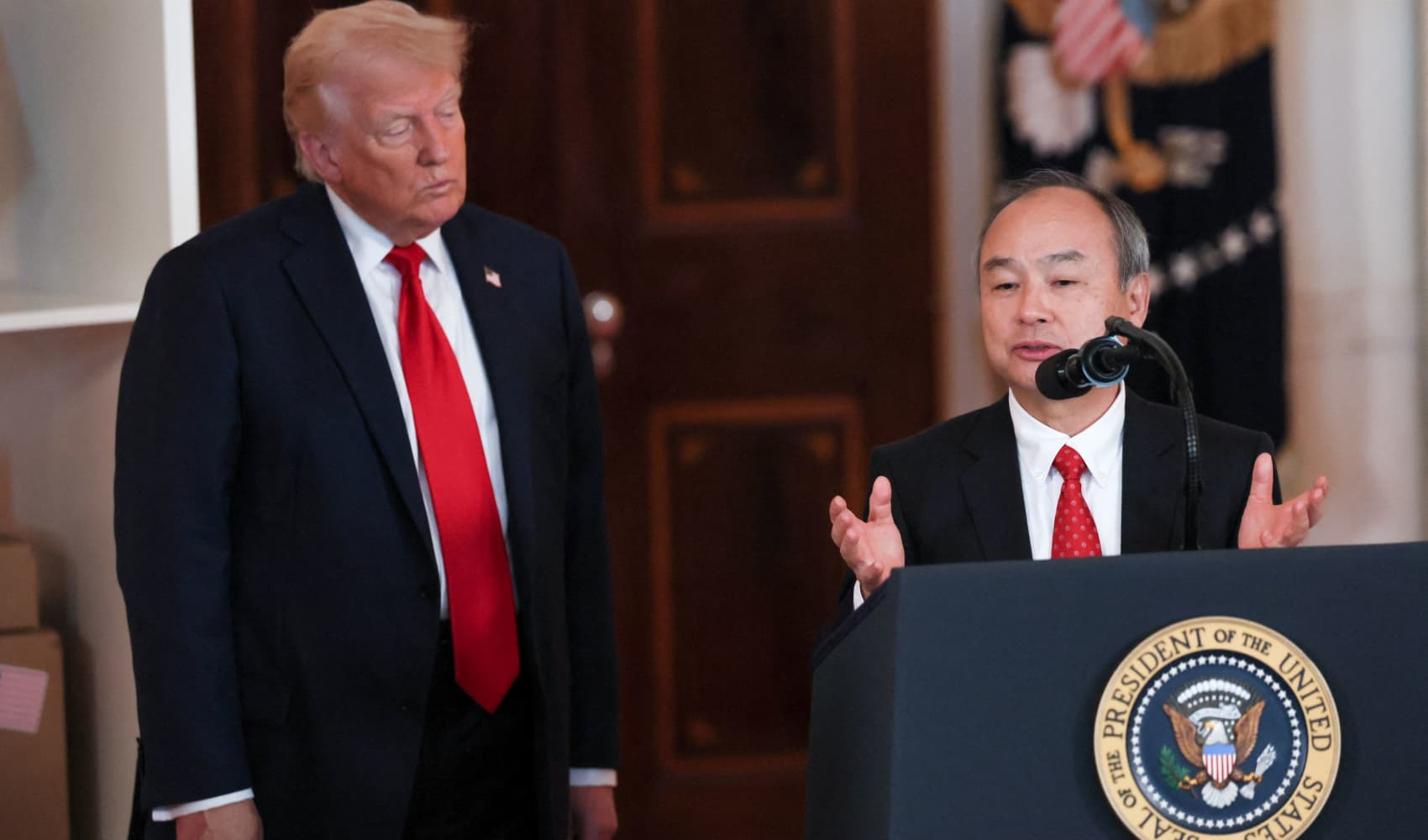SoftBank's $778M Loss: What's Next for Vision Fund?
SoftBank Vision Fund: From Boom to Bust? Analyzing the $778M Loss
Introduction: The Tech Titan's Tumultuous Year
SoftBank, a name synonymous with disruptive tech and bold investments, has seen better days. Their Vision Fund, once the envy of the venture capital world, has stumbled. The latest fiscal year, ending in March, paints a less-than-rosy picture, with the fund reporting a significant loss. How did this happen, and what does it mean for the future of tech investing? Let's dive in and unpack the details behind this financial downturn.
The Headline: A $778 Million Pretax Loss
The numbers don't lie. SoftBank's Vision Fund business reported a pretax loss of 115.02 billion yen, which translates to roughly $777.7 million. This is a stark contrast to the previous fiscal year's profit of 128.2 billion yen. That's quite a swing! But what factors contributed to this significant shift?
Investment Gains: A 40% Decline
The heart of the matter lies in the slowing gains from SoftBank's tech investments. The Vision Funds saw a 40% fall in investment gains, dropping from 724.3 billion yen to 434.9 billion yen in the fiscal year. That's a hefty chunk of change! Think of it like a star athlete whose performance suddenly dips – you have to analyze what's going on to understand the decline.
Fourth Quarter Relief? A Minor Uptick
In the fourth quarter – the three months ending in March – SoftBank’s Vision Funds segment did manage to record a 26.1 billion yen gain. While this is positive, it wasn't enough to offset the overall losses accumulated throughout the year. It's like putting a small bandage on a larger wound – it helps a little, but more comprehensive treatment is needed.
Didi and Coupang: Silver Linings?
Despite the overall gloom, there were some bright spots. SoftBank saw gains on its investments in Chinese ride-hailing giant Didi and South Korean e-commerce powerhouse Coupang. These successes offer a glimpse of the potential that still exists within SoftBank's investment portfolio. But the question remains: are these isolated wins or signs of a broader recovery?
H2: The Macroeconomic Headwinds
It's crucial to remember that SoftBank's performance isn't happening in a vacuum. A confluence of macroeconomic factors is impacting tech investments across the board. Rising interest rates, inflation, and geopolitical uncertainty have all contributed to a more cautious investment environment. Are these macroeconomic factors just temporary speed bumps, or will they persist and continue to challenge SoftBank and other tech investors?
H3: The Impact of Rising Interest Rates
Rising interest rates make borrowing money more expensive. This, in turn, reduces the amount of capital available for venture capital firms like SoftBank to invest in startups. It's like tightening the purse strings – investors become more selective and risk-averse.
H3: Inflation's Bite
Inflation erodes purchasing power and increases operating costs for businesses. This can negatively impact the growth prospects of the startups SoftBank has invested in, ultimately affecting the value of their investments. Imagine a restaurant owner who has to raise prices – they risk losing customers, which impacts their bottom line.
H3: Geopolitical Uncertainties
Geopolitical events, such as wars and trade disputes, create uncertainty and volatility in the market. This makes it difficult to predict the future and can lead to investors pulling back from riskier assets like tech stocks. The current geopolitical climate is akin to navigating a ship through a stormy sea – it requires caution and strategic maneuvering.
Beyond the Numbers: What's Next for SoftBank?
The latest financial results raise some important questions about SoftBank's future strategy. Will they continue to make bold bets on disruptive tech companies, or will they adopt a more conservative approach? Will they focus on profitability over growth? These are critical decisions that will shape the company's trajectory.
The Vision Fund's Evolution: A Shift in Strategy?
It's possible that SoftBank will need to adjust its Vision Fund's investment strategy. Perhaps they'll focus on later-stage companies with proven business models and clearer paths to profitability. Maybe they'll prioritize investments in specific sectors, such as artificial intelligence or renewable energy, that are deemed to have greater long-term growth potential. This shift could be akin to a company re-inventing itself to adapt to a changing marketplace.
Risk Management: Learning from Past Mistakes
The recent losses highlight the importance of robust risk management. SoftBank may need to implement more stringent due diligence processes and diversify its investment portfolio to mitigate the impact of future downturns. Learning from past mistakes is crucial for any investor, and SoftBank is no exception.
The Future of Tech Investing: A More Cautious Approach
The SoftBank situation is a reminder that the era of easy money and rapid growth in the tech sector may be coming to an end, at least for now. Investors are likely to be more discerning and demanding, focusing on profitability and sustainability over pure growth metrics. It's a new era for tech investing, one that demands more caution and a greater emphasis on fundamentals.
SoftBank's Response: A Test of Resilience
How SoftBank responds to these challenges will be a true test of its resilience. Will they be able to navigate the current headwinds and emerge stronger than ever? Or will they continue to struggle as the tech investment landscape evolves? Only time will tell.
The Broader Implications: A Wake-Up Call for the Industry
The struggles of SoftBank's Vision Fund serve as a wake-up call for the entire tech industry. It's a reminder that even the most successful investors are not immune to market forces and that sound financial management is essential for long-term success. This isn't just about SoftBank; it's about the future of tech investment as a whole.
Expert Opinions: What Analysts Are Saying
Analysts are closely watching SoftBank's next moves. Some believe that the company needs to streamline its operations and focus on its core strengths. Others argue that SoftBank should continue to pursue its bold investment strategy, but with a more disciplined approach. The consensus seems to be that change is needed.
Conclusion: Navigating the New Tech Landscape
SoftBank's recent financial performance highlights the challenges facing the tech industry in a changing macroeconomic environment. The $778 million pretax loss and 40% decline in investment gains underscore the need for a more cautious and disciplined approach to tech investing. While gains from Didi and Coupang offer a glimmer of hope, the future of SoftBank and the Vision Fund will depend on their ability to adapt to the new landscape, manage risk effectively, and learn from past mistakes. It's a complex situation, but one that will undoubtedly shape the future of tech investment for years to come.
Frequently Asked Questions (FAQs)
Here are some frequently asked questions about SoftBank's Vision Fund and its recent performance:
- Why did SoftBank's Vision Fund experience a loss this year?
The loss was primarily due to slowing gains from its tech investments, compounded by macroeconomic headwinds like rising interest rates and inflation. - What were some of the successful investments for the Vision Fund?
The Vision Fund saw gains from its investments in companies like Didi and Coupang. - How is the macroeconomic environment impacting tech investments?
Rising interest rates, inflation, and geopolitical uncertainty are making investors more cautious and risk-averse. - Will SoftBank change its investment strategy in the future?
It's possible that SoftBank will adopt a more conservative approach, focusing on later-stage companies with proven business models. - What does this mean for the broader tech industry?
It serves as a reminder that even successful investors are not immune to market forces and that sound financial management is essential for long-term success.

